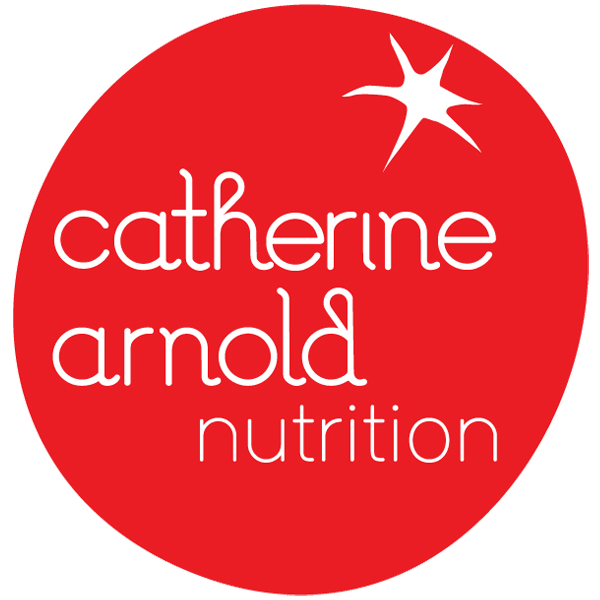The nutrients that we eat build the physical structures of our body, they are essential not only for energy, but for growth, repair and maintenance. They become enzymes, hormones, neurotransmitters and more.
In fact, every single physiological and biochemical process in the body is governed by nutrition. So what you eat is pretty important and your ability to digest that food, even more so!
Nutritional therapy is a complementary medicine based on the latest nutrition science, which aims to support the body’s own healing mechanisms through diet and lifestyle change.
There is nothing new about viewing food as medicine, Hippocrates, the father of medicine viewed diet as an integral part of the healing protocols he used with his patients. It makes sense that the food we eat is as nourishing as possible but sometimes there are confusing messages about what exactly is good for us to eat. This is where I can help, to guide you through the latest nutrition science to choose a way of eating that works best for you and your health.
Whether you just want an MOT or you have specific health issues you are trying to address, I can support you. I spend time to understand the unique circumstances of each of my clients, to create a personalised, bespoke plan, that’s achievable and practical too. As a result, my clients have transformational experiences with nutritional therapy – they are very often amazed at how simple it is to start feeling better. This is why I feel so passionately about it, I am blown away by this simple yet effective approach to healthcare on a daily basis.
I have seen people in my clinic for many illnesses and imbalances including:
- Asthma
- Arthritis
- Acne
- Autoimmune illnesses
- Allergies
- Cancer
- Coeliac disease
- Depression
- Diabetes
- Eczema
- Endometriosis
- Fatigue
- Fertility issues
- Fibroids
- Frequent infections
- Gallstones
- Headaches
- Heart disease
- Hypertension
- IBS
- Insomnia
- Low libido
- Migraines
- PCOS
- Unexplained gut pain
- Stress
Functional Medicine
Functional medicine is an evolution in the practice of medicine that better addresses the healthcare needs of the 21st century. It aims to identify and address the root cause of health problems rather than providing a ‘pill for every ill’ which is often the basis of conventional medicine protocols.
Your body is made up of cells, tissues and organs which work together to form systems such as the endocrine (hormones) system, digestive system, cardiovascular system and immune system. These body systems use complex biochemical pathways which require nutrients from our diet to operate and function normally. They can also be influenced by an individual’s genetics, environment (including pollution, toxic exposure), emotional experiences, stress and wellbeing. Functional Medicine involves looking at what is driving your symptoms, by looking in depth at your health history, diet, current lifestyle patterns, stress burden and genetics. I use laboratory tests to explore exactly what is happening in the body, to ascertain where the imbalances are, in order to address them to prevent disease and support the body back to optimal health.
In addition to my Naturopathic Nutrition Diploma, I have undertaken advanced studies with the Institute of Functional Medicine and am a Certified Functional Medicine Practitioner. This means I spend time with my clients, taking detailed health histories and observing the interactions of genetic, environmental and lifestyle factors that may be influencing their health. This, combined with information gathered from blood tests from your doctor or private tests such as stool tests and hormone tests, help me to understand more about the root cause of your health issues.
There is a period of time, before disease sets in, when the body is in a state of imbalance, or ‘pre-disease’. You may have a number of symptoms which indicate that certain body systems are not operating at an optimal level. Functional medicine aims to address the causes of dysfunction and restore optimal function, renewed vitality and wellbeing. This is achieved through therapeutic diets, quality supplements, stress management techniques, exercise and other supportive therapies.
Gut Health
I see many people in my clinic with digestive issues and it’s really important to address these symptoms. An imbalance here can lead to disease due to the impact on nutrient absorption and also immune function. Around 70% of your immune system cells can be found in the digestive tract so dysfunction in the gut could leave you with reduced ability to fight infection and disease. But did you also know that imbalances in gut function can impact your hormone balance and mental health too? In fact, gut health is always the first place I start to work on with all of my clients, as optimal gut health is key to a healthy body.
Food intolerances, stress, toxins and disease are some of the things that can impact digestive function. A lot of my clients have been back and forth to the doctors for a long time but have found that the medications on offer do nothing to improve their symptoms. That’s because it’s diet and lifestyle change that is required to move towards a happier gut which functions normally. I can support you to make those changes and together we can come up with a diet that works for you.
Hormone Health
Hormones are incredibly important in the body – they are essential to your metabolism, growth and development. They regulate your sex drive and reproduction, blood sugar balance and stress management. There are more than 80 identified human hormones, each one is a ‘chemical messenger’ which targets a specific cell – to make it change the way it behaves or to perform a specific task. For example, cortisol, your stress hormone, makes your heart beat faster, your blood vessels dilate and it increases blood sugar to give you energy to run away from danger. Sex hormones like oestrogen and progesterone prepare the body for conception and then support the growing foetus in the body. If conception doesn’t happen then a drop in these hormones stimulates the shedding of the womb lining which results in menstruation (a period).
A common thing that happens when I work with female clients is that their period symptoms reduce – I always take this as a sign that things are moving in the right direction. Our hormonal health is, like everything else in the body, interconnected with our diet and nutritional status, detoxification, gut health and emotional wellbeing. It is also influenced by environmental pollutants known as endocrine disrupting chemicals which can literally alter the delicate balance of hormones and cause imbalances that can lead to health problems.
Fertility issues, polycystic ovaries, endometriosis, painful heavy periods, and PMT are all signs of hormonal imbalance. Optimising your diet and lifestyle should be the first step to addressing these imbalances, and understanding what is causing them will be key to reaching a healthy balance.
I help my clients understand their bodies more than they ever have, by using private tests to give a clearer picture of their hormone levels and the balance of hormones throughout the day. It’s important to understand the influence that different hormones have on each other, if one is out of balance that will affect others. In particular our stress hormone, cortisol can impact our sex hormone levels. So in addition to looking at diet, I like to spend time looking at ways to reduce stress and working on improving the stress response so that it has less impact on the body.
As we age, our hormone balance changes too and so managing the shifting requirements of our body is an ongoing process. I can help you navigate your hormonal challenges, whatever ‘stage’ you are in, by helping you tune into how your body works and supporting you with appropriate dietary and lifestyle advice.
My Training
In addition to my training at The College Of Naturopathic Medicine where I completed a Diploma in Naturopathic Nutritional Therapy, I am also a Certified Functional Medicine Practitioner. This involved completing advanced training in the following:
AFMCP—Applying Functional Medicine in Clinical Practice
Gastrointestinal Advanced Practice Module
Cardiometabolic Advanced Practice Module
Immune Advanced Practice Module
Hormone Advanced Practice Module
Energy Advanced Practice Module
Biotransformation Advanced Practice Module
In addition to these studies, I am on a continuous learning path. As a BANT Registered Nutritional Therapist I am required to do at least 30 hours of continued professional development (CPD) per year to keep me on top of the latest developments in nutrition science.
Functional Medicine and Nutritional Therapy are an empowering journey to health and wellness, get in touch to find out how it can help you.



